4 Weeks in Lesbos Refugee Camp
Young ESPID Member, Lilly Verhagen writes about her experiences volunteering there.
FOUR WEEKS IN LESBOS:
SOMETIMES, CAREGIVING IS A CUP OF HOT TEA
Lilly M. Verhagen, Paediatrician, M.H.Sc. Epidemiologist, PhD
ESPID Board Member, Young ESPID Rep
May 2021
At first, I felt a bit embarrassed: I was only going to be here for a couple of weeks. Was it realistic to think that I could be of help?
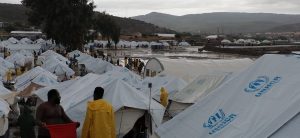
In March 2021, I was given the opportunity to work in Lesbos, Greece for a month. I worked as a doctor with Boat Refugee Foundation, a Dutch non-governmental organisation, who deliver emergency medical aid to the largest refugee camp on the island. Their mission to ‘make a difference in places where it is needed most’ is very close to the answer I give when people ask me why I became a paediatrician: to care for those that are less able to care for themselves.
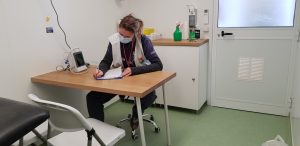 As a paediatrician, I have always noticed that the patients/caregivers who affect me the most are the people in whom I recognize a part of myself. I remember telling a mum that just gave birth to her fourth daughter that I am one of four daughters. I remember the intelligent, quiet girl who was too proud to show her fear about her upcoming colonoscopy; she became more relaxed when I told her I once had a colonoscopy myself. I vividly recall how happy I was when we were able to treat the fungal skin infection of a funny but stubborn young girl from Somalia who wanted to become a doctor.
As a paediatrician, I have always noticed that the patients/caregivers who affect me the most are the people in whom I recognize a part of myself. I remember telling a mum that just gave birth to her fourth daughter that I am one of four daughters. I remember the intelligent, quiet girl who was too proud to show her fear about her upcoming colonoscopy; she became more relaxed when I told her I once had a colonoscopy myself. I vividly recall how happy I was when we were able to treat the fungal skin infection of a funny but stubborn young girl from Somalia who wanted to become a doctor.
Maybe that’s why the work in Lesbos affected me as much as it did. “They” are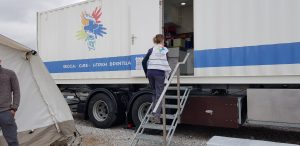 “us”. Ambitious, intelligent and educated young people that had the courage to leave a country in which they did not have a future. Often it was not just the situation in the country that made them leave, it was a recent tragedy on top of that, such as the death of a family member. This convinced them that fleeing was their only choice to preserve their own lives and the lives of their loved ones. They arrived in Europe, surviving the pushbacks, only to find themselves in a refugee camp for years, desperate and depressed as they wait for asylum.
“us”. Ambitious, intelligent and educated young people that had the courage to leave a country in which they did not have a future. Often it was not just the situation in the country that made them leave, it was a recent tragedy on top of that, such as the death of a family member. This convinced them that fleeing was their only choice to preserve their own lives and the lives of their loved ones. They arrived in Europe, surviving the pushbacks, only to find themselves in a refugee camp for years, desperate and depressed as they wait for asylum.
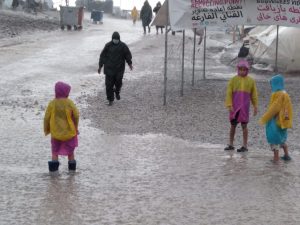 At first, I felt a bit embarrassed: I was only going to be here for a couple of weeks. Was it realistic to think that I could be of help? Or would I be a mere observer without contributing much? The remarkable resilience of people deprived of everything they once valued made me feel very humble. This was not about me. It was about showing people that we do care; a cup of hot tea on a cold night, the power of silence to show that it’s OK to open up, and the reassuring promise that we could reassess a child if the diarrhea would not stop.
At first, I felt a bit embarrassed: I was only going to be here for a couple of weeks. Was it realistic to think that I could be of help? Or would I be a mere observer without contributing much? The remarkable resilience of people deprived of everything they once valued made me feel very humble. This was not about me. It was about showing people that we do care; a cup of hot tea on a cold night, the power of silence to show that it’s OK to open up, and the reassuring promise that we could reassess a child if the diarrhea would not stop.
Europe does not only create physical borders around the camps, we also create borders in our hearts and minds, when we think about solutions for “the refugee crisis” or “the migrant problem”. While it’s easier to distance yourself when talking about “them”, the stories of their childhood, their relationship issues, the self-doubt and the ambition to develop themselves all sound very familiar. In reality, maybe the only difference between “them” and “us” is that we are lucky enough to be born somewhere else.
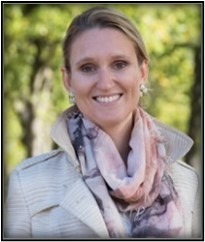
Lilly (1984) is as a paediatrician / fellow paediatric infectious diseases and clinician scientist. She is currently based in The Netherlands (Wilhelmina Children’s Hospital, University Medical Center Utrecht) and previously held positions as a clinician scientist in, among others, Tanzania (2008), Venezuela (2009 – 2013), and South Africa (2020). Her translational research on host-pathogen interactions in global paediatric risk groups for respiratory tract infections (RTIs) was the cornerstone of her Cum Laude research doctorate in 2014. Since the completion of her PhD, her research scope has specifically focused on the mucosal immune system of the respiratory tract.
